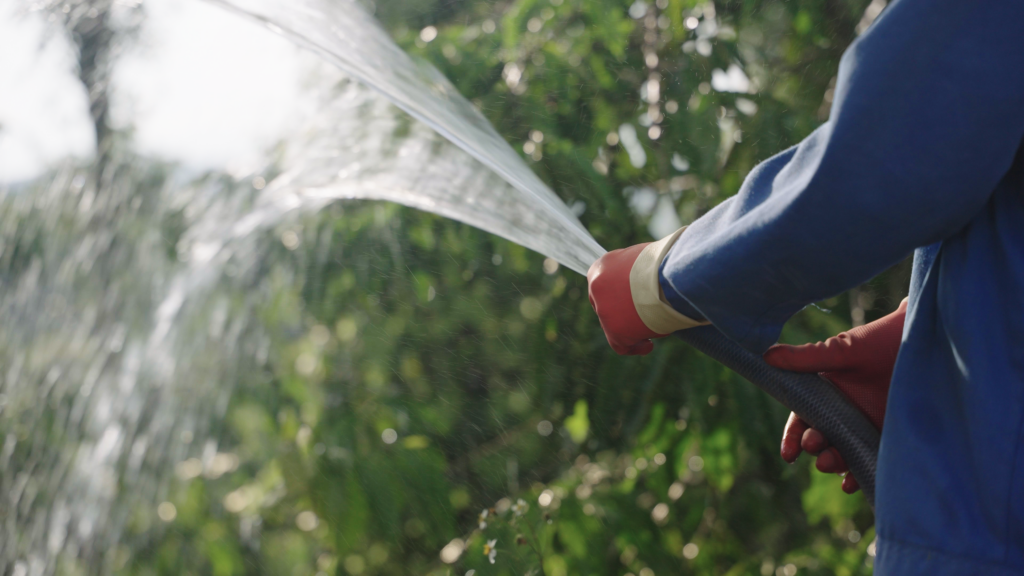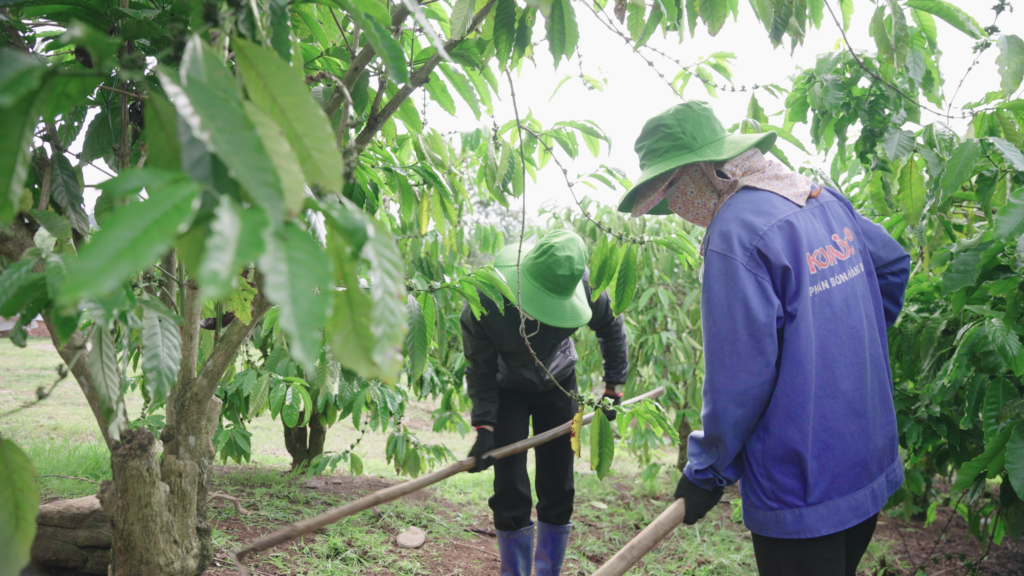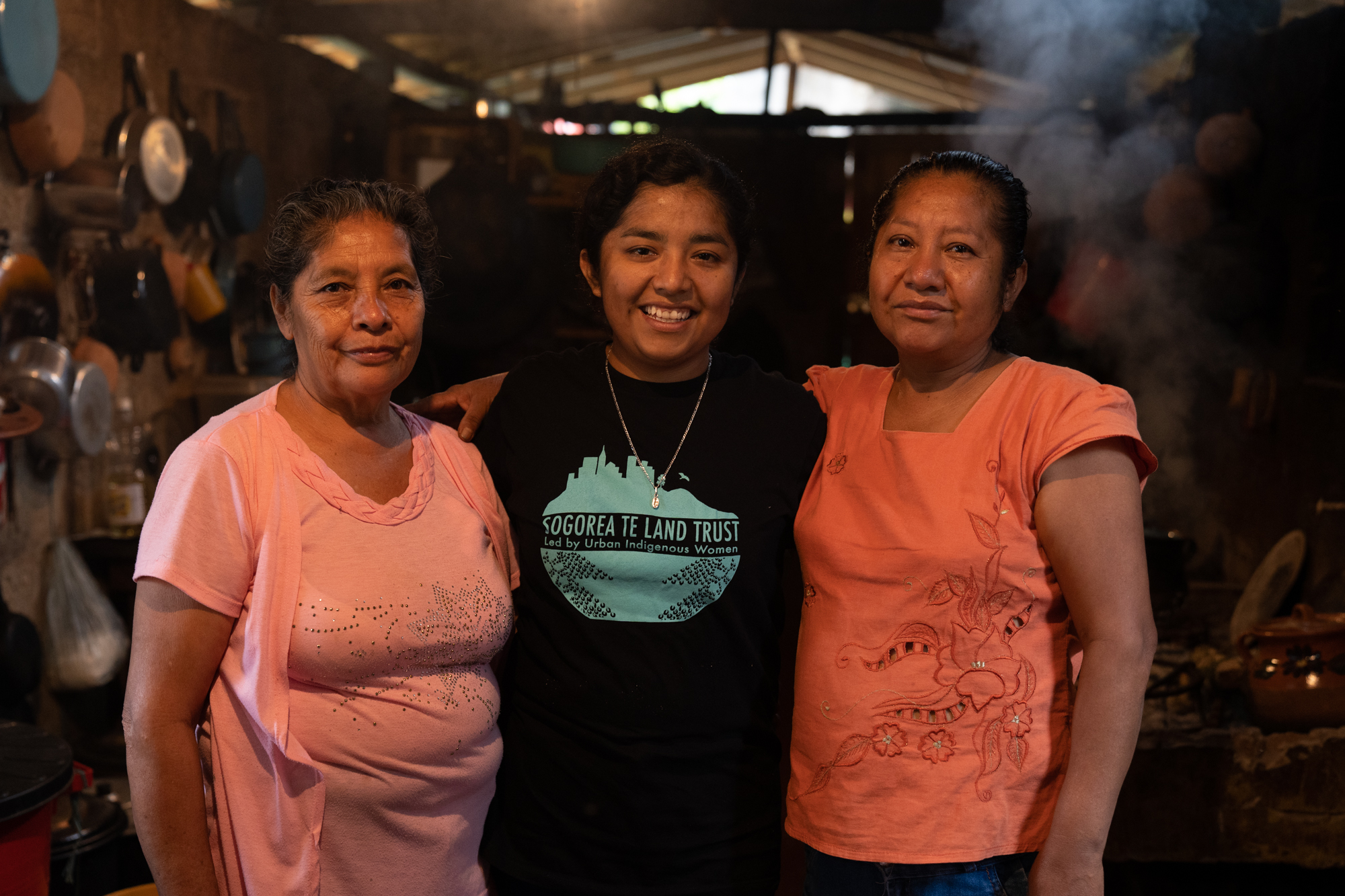Meet Briseida, a “proudly peasant” coffee worker
Briseida is one of the many coffee workers behind your daily brew. Briseida is the President of the women-led cooperative VIDA AC which is spreading the word about safety and health at work in Mexico. Coffee farming is such an important part of her identity that she thinks of her co-workers as family.
Coffee farm workers often use heavy machinery on the plantation, which can lead to accidents. Through the Vision Zero Fund training, Briseida learned how to avoid risks like that. Now, she and her co-workers have a background in OSH and look out for themselves and for one another at work. They’ve learned about the importance of machine maintenance, especially for old ones. And they’ve realized that they needed to make certain adjustments, like replacing light bulbs or wearing protective equipment like gloves.
Vision Zero Fund’s global efforts to improve worker conditions

The number of people impacted by Vision Zero Fund programming: https://public.flourish.studio/visualisation/14183830/
Vision Zero Fund is working to build a world with zero work-related deaths, accidents, or injuries. This vision goes beyond the coffee industry. It encompasses working conditions in global supply chains, including in agriculture, textiles, and construction, where people are susceptible to harm. According to statistics from the International Labour Organization (ILO), there are 2.78 million work-related deaths every year across all sectors.
In the agriculture sector, where 1.3 billion people work, there is a wide spectrum of risks. However, farmers often do not recognize that the risks to which they are exposed are part of their work and lack the knowledge or the means of prevention. VZF works at global, country and workplace levels, seeking to strengthen the worldwide enabling environment for safe and healthy working conditions; improve national legal and policy frameworks; and implement more effective prevention, protection and compensation mechanisms for women and men working in targeted supply chains.
In 5 years, Vision Zero fund has impacted 5.6 million coffee workers in 5 countries. The VZF is set to do so much more in the future, but it does not act alone. Vision Zero Fund is a part of the ILO’s Safety & Health for All flagship programme and works with the support of the G7 and the G20 countries as well as the European Union, United States, Germany, France, and in partnership with organizations such as the International Coffee Organization (ICO), International Women’s Coffee Alliance (IWCA), and the Global Coffee Platform (GCP).
The Coffee Toolkit: Equipping Stakeholders for OSH

VZF didn’t stop at identifying underlying challenges in the coffee industry. It developed and tested tools and methodologies piloted in five countries: Colombia, Laos, Mexico, Honduras, and Vietnam, and encapsulated them into a coffee toolkit for supporting governments, employers’ and workers’ organizations, and other key coffee stakeholders endeavours to improve occupational safety and health (OSH) along the supply chain.
Within the toolkit, you will find a compilation of 19 ILO awareness raising, training and research tools that can serve as reliable references for understanding OSH principles, guidelines, and best practices. Whether you are an OSH professional, a researcher, a policymaker, or someone interested in promoting safe and healthy workplaces, this toolkit will equip you with essential information and methodologies to make informed decisions and take effective action.
What’s inside:
- 19 OSH tools and methodologies on the following topics: 6 for OSH risk management, 9 for mitigation and prevention of COVID-19, and 5 for OSH knowledge
- Quick references to 40 ILO OSH labour standards.
How to use:
- Implement the research tools to better understand workers’ OSH knowledge and practices.
- Use research findings to plan for awareness-raising and training activities and to inform policy-making.
- Use the capacity development tools to train coffee workers.
- Share the awareness-raising materials in the toolkit (posters, videos) on social media platforms to raise awareness about hazards and risks in coffee production.
Advocating for coffee workers’ well-being
Imagine a world where every coffee worker can tend to the fields without fear of harmful chemicals, where their bodies are not strained to the point of pain, and where accidents and illnesses are prevented through comprehensive safety measures. By supporting initiatives that prioritize worker well-being, we can create a ripple effect of positive change.
Let us stand united, with knowledge and empathy, as we work towards decent work and occupational safety and health for all. Let us lend our voices, use our creativity, and invest our funding to advocate for better working conditions for coffee workers.
Remember, each cup we enjoy holds within it the stories and dreams of countless coffee workers. It is our responsibility to ensure that their journey is filled with dignity, safety, and hope. Together, let us champion the cause and make a meaningful difference in the lives of those who make our daily brew possible.
- Get involved by taking the #CoffeePeople challenge!
- Learn more at coffeepeople.vzf.ilo.org.
- Follow us on LinkedIn at Vision Zero Fund.
